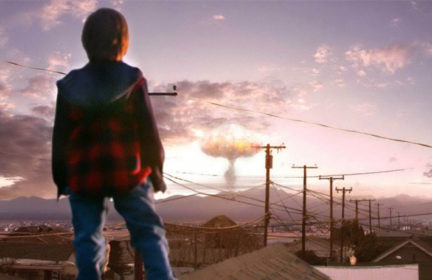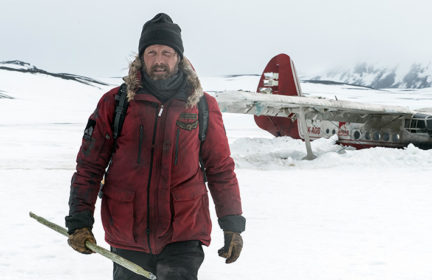Preparedness podcasts?
Hi all,
I’m curious as to whether any of you have any preparedness podcasts that you enjoy, or even singular podcast episodes — perhaps interviews with preparedness experts talking about what they have and do and why, scientists who have expertise relevant to natural disasters and response thereto, first responders, structural and civil engineers, or people who work in government on disaster readiness and response.
I like that The Prepared doesn’t pick sides politically and is focused on providing high quality information, so anything that is similar to this site in those dimensions would be especially appreciated. The one thing I’ve found so far that I like is “Getting Through It” with Dr. Lucy Jones, which is really interesting, but it’s a lot more about the social and natural science of disasters than how we prepare for them.
Thanks for any ideas!
[Edited to add: I’m asking because I often stay up too late sewing or reading preparedness-related content on the internet. Listening to preparedness-related content while sewing seems like it would be an efficiency gain.]-
Comments (31)
-
MrsG - September 17, 2020
I think Things That Go Boom, while not specifically a prepper podcast is very interesting for people who think about prepping.
The Big One, about earthquakes, is good.
Neighborhood Preppers only have a few episodes. It’s not super professional but they seem like a nice pair of very sane guys with some good tips.
-
pnwsarahContributor - September 18, 2020
Thank you! I started The Big One last night and I really like it, particularly because of the fictitious scenario that frames the storytelling, because it helps me transpose those scenarios onto my own city.
The interview in the first episode with the woman who was trapped following the Christchurch earthquake was particularly sobering, since I live in a city that is actually often compared to Christchurch because of its combination of seismic vulnerability and a downtown full of gorgeous, beloved, but totally unreinforced brick buildings. Like Ann, I mostly go out of my way to avoid unsafe areas (e.g., I take two busses instead of one because the one bus route crosses a vulnerable bridge and the two bus route uses a new, seismically hardened bridge) but sometimes give in to what is most convenient.
I’ll put your other two recs in my queue, and look forward to them, but your first one is already a hit, so thank you!
-
Essie Carroll - September 24, 2020
I’ve heard good things about the Big One. Guessing it will freak me out a little but that’s almost the new normal!
-
pnwsarahContributor - December 11, 2022
Just discovered that the people who did The Big One released a new podcast this fall called The Big Burn, about how and why fire is changing in the West, esp. California. I’m four episodes in, while I haven’t really learned anything new in the big-picture sense (this stuff is much closer to my own training and experience than the content of The Big One), some of the details have been really interesting (e.g., Ep 4 on Indigenous use of fire was poignant and went into a level of detail on cultural burning that I was surprised to hear shared in this format), and I do think they’re doing a great job so far of clearly explaining some key nuances, e.g., the difference between beneficial and “bad” fire, and the extent to which the current crisis is a product of multiple interacting factors (climate change being one of the most important, but not the only one). Also, the upcoming episodes look like they’ll cover some less well-traveled territory (“The Bunker Solution”?!) and/or dig into topics that I’ve always wanted to learn more about (i.e., how Southern California fire ecology and fire behavior differ from the key insights for NorCal), so I don’t necessarily think people that who are familiar with this topic won’t find new info. on the pod.
-
-
Josh CentersContributor - September 18, 2020
I like Prepping 2.0. They lean right, but it’s not usually too overtly political. The interviews with Dan the food industry CEO are always interesting.
-
Paulino Martin - September 18, 2020
I liked It Could Happen Here.
-
doommunky - September 26, 2020
Great recommendation, thanks for this. It’s both really good and feels a little like prepper porn.
I’m only on episode 2, but the reporting is good and he does a good job walking you into the premise.
-
Mar Tam - September 28, 2020
I agree with this recommendation. I was very skeptical going in because I’ve heard people discuss the potential for ‘the second American civil war’ before and there are two traps they often seem to fall into: (1) they dismiss the existing social science work entirely and (2) they are too confident in their idea of what it would like.
But I think the creator and host of It Could Happen Here lays out his ideas pretty well, is attentive to the existing social science research around civil wars (without being beholden to it!), and takes good care not to commit too strongly to one single possibility or vision for what the future might look like. As a result it ends up being a really educational podcast.
-
Matt Black - September 28, 2020
I highly recommend it! I listened to ICHH when it first came out. And again about 2 months ago. Eerily prescient at many points.
For anyone else looking to listen to It Could Happen Here (by Robert Evans [@iwriteok on Twitter]), your shortcut to the podcast is >>>here (via iheartradio).
-
pnwsarahContributor - October 11, 2020
Following up to say that I stayed up way too late last night (yes, sewing) because I started ICHH and couldn’t stop listening. It’s really scary, but not to a degree that isn’t warranted by the actual circumstances. I feel like I’ve learned a lot just in the first few episodes, and it’s given me a lot to think about. Great rec— thank you!!
-
pnwsarahContributor - October 10, 2020
I’m really looking forward to listening to this one— thank you!
-
doommunky - October 10, 2020
The author (Robert Evans) has another great audiobook called The War on Everyone that’s free, and covers the white supremacist movement in America. Very, very good stuff.
-
Hermit - November 15, 2020
Thanks for the recommendation. I listened to ICHH and got a lot out of it. Looking forward to The War on Everyone.
-
doommunky - September 3, 2021
It Could Happen Here now has a “second season”, which is 5 episodes very similar to the original, but centered around climate catastrophe, the rise of authoritarianism, and weaponized disinformation. The 5 eps are very good, and give a great overview of some key things to be aware of as you prepare.
But ‘season 2’ is misleading, because it’s also become a daily podcast, with weekdaily episodes going deep on current events, interviews, and more, all related to the core issues related above.
If you’re at all interested, listen to the first 5 episodes and see what you think – I’m loving it, and finding it very helpful as I prepare for my future, and my kids’.
-
Robert LarsonContributor - September 3, 2021
I’ve subscribed to the It Could Happen Here podcast months ago with hopes of listening to it, but just haven’t gotten around to it. I have noticed it popping up new episodes on my feed though.
How do you feel about the first 5 episodes of the second season compared to the first? Should I start from the beginning with season one?
-
doommunky - September 4, 2021
Season 1 is from 2019, just prior to Covid-19. It’s about the possibility of a “2nd American Civil War”, based on Evans’ reporting on far right and far left movements, and the general fracturing of a shared fact-base and common understanding of values. He talks through (I feel) fairly plausible scenarios of extreme groups causing deep disruption, including how the US military could be frustrated by a “sufficiently motivated” armed group. I found it very enlightening; it changed my understanding of the gun control options available to the country, and convinced me of the importance of local networks of connection and mutual support.
Season 2 is from July/August 2021, and is about how climate, authoritarianism, and misinformation combine to create a unique environment in which the crumbling of our usual national networks and support systems will lead to increasingly extreme disruptions and permanent alterations in the way we live, both in the West and around the world. It’s about how “post-Normal” is coming, how we can understand it, prepare for it, and help to mitigate/adapt to it.
They’re thematically connected, but if you’re more interested in one subject than the other, start with that! There’s no information you need from 1 to make sense of 2.
-
Robert LarsonContributor - September 4, 2021
Thank you for the very well written summary. I’m leaning more towards season 2 to start out with because of the timeliness of the misinformation. Glad that 2 doesn’t rely on 1. But I still will probably listen to 1 eventually.
-
pnwsarahContributor - September 3, 2021
So the first five episodes with the climate catastrophe scenario are the first five episodes of the ICHH Daily? Just want to be sure it’s worth going all the way back to the beginning of the “second season”… but who am I kidding? I’m sure I’ll listen to all of them. I really appreciate Robert Evans’ approach.
-
doommunky - September 4, 2021
It’s absolutely worth it, IMHO! In ep 6, where he and his team talk about their goals and approach, they state they want the first 5 episodes to be a sortof evergreen overview/introduction to the core ideas and concerns, and then ongoing daily episodes to be dives into individual concerns and ideas tied into the overall thesis and themes.
I’ve really enjoyed the first 10 or so, particularly the interviews with two authors of recent climate books; David Wallace Wells (author of The Uninhabitable Earth) is particularly well-informed, well-spoken, and shared some (to me) surprising perspectives on our current state and upcoming challenges.
-
-
matthew.Contributor - November 8, 2020
I recently finished both The Big One and It Could Happen Here and want to echo what others have said; they are both fantastic.
Another podcast I recently stumbled across (thanks algorithms!) is Live Like the World is Dying, and it’s definitely worth checking out. Robert Evans, the brain behind It Could Happen Here, is interviewed in one episode, so be sure to check that out if you’ve been urning for an update from him.
-
pnwsarahContributor - November 14, 2020
Finally got around to checking out Live Like the World is Dying and it ticks so many boxes for me— I even like the logo art! Thank you!
-
doommunky - November 16, 2020
Yay, this one is good, too! Different flavor than the other two mentioned, but very personally inflected and fascinating.
-
-
Chris B - December 30, 2020
Just listened to a recent NPR episode from “The Indicator from Planet Money” which was called “Why We Weren’t Prepared For A Pandemic”. I thought it was really good. It touched on normalcy bias, optimism bias, and herd mentality. It also talks about why some businesses and government policy makers aren’t so great (to put it nicely) at preparing for disasters.
You can check out the episode here: https://www.npr.org/2020/12/23/949598713/why-we-werent-prepared-for-a-pandemic
-
Mike Hill - July 8, 2021
My latest find is a podcast called “The Secure Dad Podcast” should be available wherever you get podcasts from, Apple or Android.
It’s just a normal everyday day Dad that one day realized that he wasn’t very prepared on protecting his family. So he touches on different ways to be more a more secure Dad. How to deal with a natural disaster, learning situational awareness, internet security, hardening and defending your home, keeping your kids from pornography, and much more.
It’s kind of a basic level of knowledge of topics so if you are new to a particular area then that’s perfect, and it’s a good reminder for veterans as well.
Just a nice easy to listen to podcast.
-
pnwsarahContributor - August 25, 2021
Finally started listening to this and I’m really enjoying it— thank you!
-
Mike Hill - August 26, 2021
It sure is a good one!
Many of the things he touches on are things I already know, but they are good reminders.
I actually used one of his techniques last week while staying in a hotel. The room had a wooden door stop, and I placed that under the door when it was closed to prevent someone from coming in. The little chain and deadbolt on hotel rooms don’t do too much for security, so having this additional layer of protection was comforting.
The Parking Lot Security for Families episode was very interesting as well. I first thought “security in a parking lot? Are you serious?” But it was very well done and is something that I have thought about ever since.
-
-
emcee - August 30, 2021
The Poor Prole’s Almanac. I’ve only listened to the trailer so far, but it sounds like it is worth some time to check it out.
-
rebecca - August 30, 2021
Looks like there are some interesting topics in this podcast.
They claim to be leftist leaning preppers, which I will find fascinating to hear their perspective on things because prepping has been heavily right leaning for such a long time. That’s one of the things that brought me over here to the prepared. Prepping doesn’t need to be only for a certain group, mindset, or people.
Good recommendation emcee
-
pnwsarahContributor - August 30, 2021
Okay, I definitely give the trailer an A+. They did a great job channeling late capitalist ennui (esp. as it presents in my demographic). The most recent episode looks especially compelling. Great find! Thank you!
-
-
brekke - August 30, 2021
I’m so glad that this post got bumped up! I suffer from migraines and listening to audiobooks has been the one thing I can do when they’re bad. I’ve been wanting to get into some podcasts instead, but didn’t know where to start. Lots of great recommendations on here that I’m looking forward to checking out.
-
Josh CentersContributor - August 31, 2021
I’m becoming a fan of Jack Spirko, who is a permaculture prepper recommended by Ben Falk of The Resilient Farm Farm and Homestead. He has a podcast and YouTube channel.
-
- News for the week of 2025-07-07 - 5 days ago
- Fun ways to teach kids outdoor/survival skills - 2 weeks ago
- News for the week of 2025-06-30 - 2 weeks ago
- News for the week of 2025-06-23 - 3 weeks ago
- News for the week of 2025-06-16 - 3 weeks ago
This forum is heavily moderated to keep things valuable to as many people as possible. Full community policies are here. The basics:
- 1. Be nice to each other.
- 2. Stay focused on prepping.
- 3. Avoid politics, religion, and other arguments.
- 4. No unfounded conspiracies, fake news, etc.
- 5. Debate ideas, not people.


